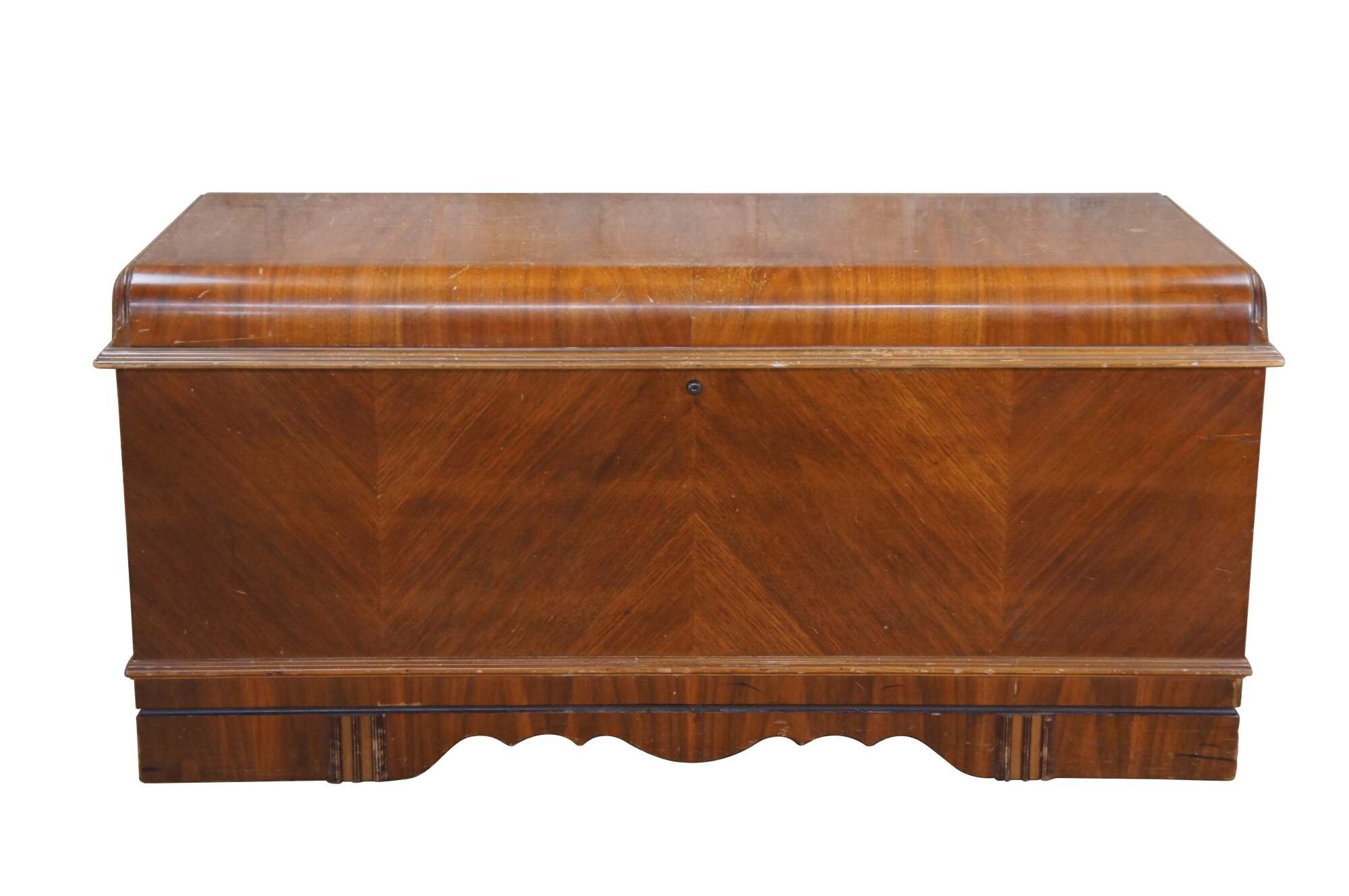
Shipping:
Free Shipping Included
Delivery:
Estimated 2-15 Business Days
Payments:
Credit Card, Check, Cash, PayPal, Apple Pay, Venmo
Returns:
30 Days 100% Money Back Guarantee, Buyer Pays Return Shipping
Description
Mid century Caswell Runyan Co cedar Hope chest. Made of walnut and cedar featuring art deco / waterfall styling.
At the turn of the 20th century, one of the most valuable items in any family’s household was the cedar chest. They stored valuables, linens and clothes, and the sweet smell of the cedar kept moths and other insects away. They were a traditional wedding item for a young bride handmade by her father.
In 1907, John Wallace Caswell and Winfred Runyan had the idea to create the first company to commercially produce the household staple. They moved from their hometown of North Manchester and eventually gave Huntington the honor of being “Home of the Cedar Chest.”
Caswell and Runyan purchased a 15,000-square foot factory at 1025 E. Franklin Street and initially hired seven employees. Within 10 years, the factory had expanded not only in size, but also in the products they turned out, adding a line of floor lamps and telephone stands. They also added a subsidiary corporation, the Wabash Shade Company, which made lampshades. In 1925 they added again to their line and became the first to commercially produce radio cabinets, and later, jukeboxes. At their height, Caswell-Runyan turned out hundreds of varieties of chests.
In 1929, Caswell-Runyan merged with the Utah Radio Products Co. to produce both radios and cabinets. During World War II, many factories retooled to assist in the war effort. Caswell-Runyan maintained one line of cedar chests and sewing cabinets, but the rest of the company focused on filling war contracts, which led them to add a metal division. Following the war, the company continued to grow, expanding to multiple buildings and hundreds of employees.
Caswell and Runyan were not only involved in their business, but also in civic affairs of the city and in social circles. When Runyan’s son, Richard ‘Dick’ Caswell Runyan, died at the young age of 15 in 1924, Winfred purchased the YMCA Boys Camp on Lake Tippecanoe near North Webster where Dick had spent his previous four summers. It was dedicated and renamed “Camp Dick Runyan’” that summer and for decades since countless children have spent summers there.
Caswell was a director at the First National Bank and build a beautiful home that still stands on North Jefferson Street.
Winfred Runyan died December 25, 1942, of a heart attack. J.W. Caswell died one month following on January 25, 1943. The company went through ownership changes after that, until June 7, 1962, when the one of the most devastating fires in the history of Huntington destroyed the factory. Smoke could be seen for more than 25 miles and the damage reached $3 million.
Condition
Fair condition, wear and distressing, heavy scuffing / marking, missing veneer, fading.
Dimensions
48" x 18 5/8" x 22"